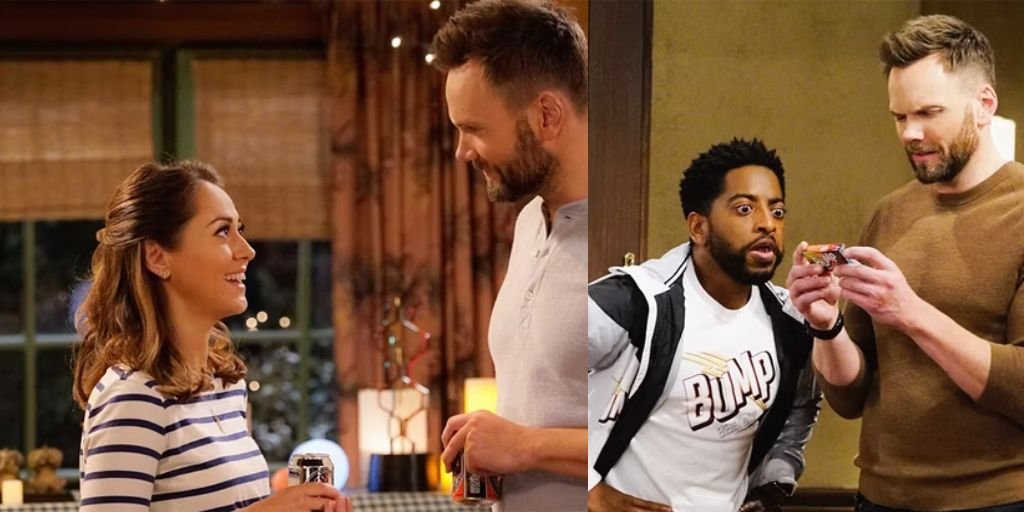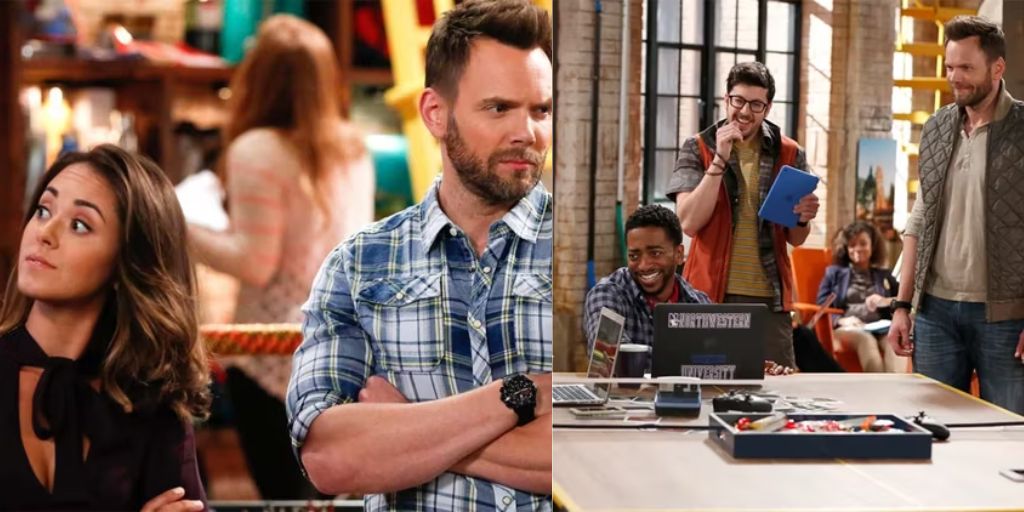
Tv is usually a robust business. Many reveals by no means make it previous the pilot stage. Community tv, regardless of being thought-about old style, is extraordinarily aggressive. The success of a present is closely depending on its rankings. Low rankings can rapidly destroy a present’s probabilities.
This actuality is one thing Joel McHale’s character would educate millennials within the short-lived sitcom, The Nice Indoors. The present initially loved success in its first season in 2016. Nonetheless, rankings plummeted within the latter a part of the season, resulting in its cancellation in 2017.
Whereas some claimed the present was cancelled resulting from “cancel tradition,” the actual downside was a poor choice by executives to alter the lead-up to the present.
Some millennials received excited by the scandal surrounding the ‘Nice Indoors’ premise
Created by Mike Gibbons, The Nice Indoors follows Jack (McHale), a journalist at an out of doors journal who turns into the boss of millennials after the journal goes digital. Jack’s old-school method clashes with the tech-savvy demeanor of his new staff.
The present additionally stars Stephen Fry as Roland, the journal’s producer, Christopher Mintz-Plasse and Christine Ko as younger staff, Chris Williams as Jack’s bar-owning pal, and Susannah Fielding as Brooke, who’s each Jack’s boss and Roland’s daughter. All through the present, Jack goes by way of a number of romantic conditions.
In 2016, millennials had been usually criticized, and The Nice Indoors displays this angle. The present premiered simply earlier than the contentious presidential election, a time when discussing “toughness” was commonplace.
Whereas the present is not politically charged, it depicts a world the place a seasoned journalist teaches millennials how one can navigate life past their digital screens. It additionally humorously highlights Jack’s self-importance.


The present has confronted controversy amongst millennials. Throughout a press convention, a heated debate arose when the present’s pilot was mentioned. Gibbons defined that millennials had been upset about jokes about their era being spoiled.
This led to a tense change with Stephen Fry defending the present, which solely intensified the dialogue. Gibbons clarified that he respects millennials, however that he thinks they usually focus an excessive amount of on themselves.
Gibbons defended The Nice Indoors as a present that pokes enjoyable at generations. When requested if the present’s simplistic premise affected its reception, he joked about making America nice once more, a press release that was controversial on the time.
A millennial viewers questioned whether or not the present was attempting to alienate millennials. McHale responded that if offending millennials was the aim, it labored.
The Nice Indoors had a promising begin with 8.8 million viewers and a 1.9 score in the important thing 18-49 demographic. Nonetheless, rankings declined after the primary season. The present was initially scheduled to air nicely after The Huge Bang Concept, however was moved to Mondays. Rankings declined considerably with out the lead-in assist. The present didn’t get a second season.
Whereas community sitcoms are much less standard lately, a robust lead-in like The Huge Bang Concept remains to be essential. The Nice Indoors did not profit from this assist and light away as a much less memorable present.
If it had saved its sturdy lead-in, it might need had a distinct destiny. The present’s failure to carry on to its viewers reveals the significance of strategic planning in tv.


